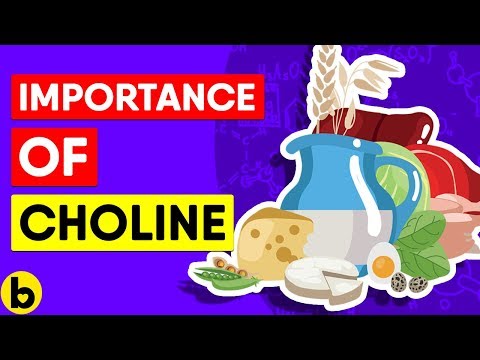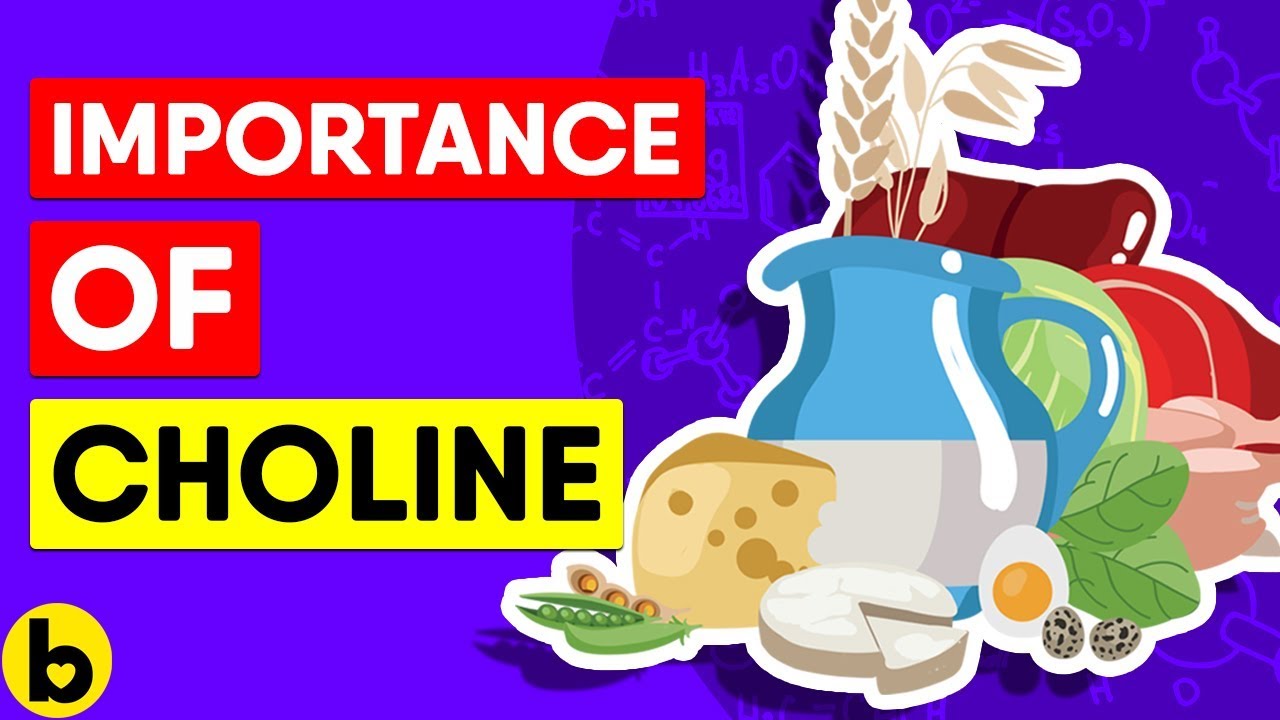Choline is a vital nutrient that plays a crucial role in various bodily functions. This essential nutrient acts as a building block for cell membranes and supports the production of acetylcholine, a neurotransmitter crucial for brain function and memory. Choline is also involved in regulating metabolism, promoting liver health, and aiding in the transportation of fats throughout the body. Studies have shown that choline may enhance cognitive function, improve memory, and support overall brain health, making it an intriguing nutrient to explore further. Additionally, choline has been linked to reducing the risk of certain birth defects and maintaining a healthy pregnancy. It is found naturally in various foods such as eggs, liver, fish, and nuts, but it may be challenging to obtain sufficient amounts through diet alone. Therefore, considering the potential benefits of choline supplementation or incorporating choline-rich foods into your diet may be of interest to those seeking to optimize brain function, support liver health, or promote a healthy pregnancy.

Role of Choline in the Body
| Function | Importance |
|---|---|
| Neurotransmitter Synthesis | Choline acts as a precursor for acetylcholine, a vital neurotransmitter involved in memory, learning, and muscle control. Adequate choline levels are crucial for optimal brain function and cognitive performance. |
| Cell Membrane Structure | Choline is a key component of phospholipids, which are essential for building and maintaining cell membranes. Adequate choline intake ensures proper cellular structure and function, contributing to overall health. |
| Lipid Metabolism | Choline is involved in lipid metabolism, facilitating the transport and breakdown of fats in the liver. It helps prevent the accumulation of fat in the liver, promoting liver health and preventing liver diseases. |
| Gene Expression | Choline plays a crucial role in regulating gene expression and DNA methylation. It acts as a methyl donor, influencing the activity of genes involved in various physiological processes, including cell growth, development, and metabolism. |
| Pregnancy and Fetal Development | Choline is particularly important during pregnancy, as it supports healthy fetal brain development and helps prevent certain neural tube defects. Adequate choline intake is associated with improved cognitive function in children. |
| Inflammation and Liver Health | Choline deficiency can lead to liver damage and inflammation. Studies have shown that choline supplementation can reduce liver inflammation and improve liver function, making it beneficial for individuals with liver conditions. |
“The Power of Choline: Fueling Your Brain & Body”
What Does Choline Do?
Choline is an essential nutrient that plays a crucial role in various bodily functions. It is involved in the synthesis of the neurotransmitter acetylcholine, which is important for memory, mood, and muscle control. Additionally, choline is a key component of cell membranes and is involved in the metabolism of fats. In this article, we will explore the benefits and functions of choline in more detail.
The Benefits of Choline
Improved Cognitive Function: Choline is known to enhance cognitive function and memory. Studies have shown that individuals with higher choline intake tend to perform better in memory-related tasks and have a reduced risk of cognitive decline. Choline’s role in the synthesis of acetylcholine, a neurotransmitter critical for memory and learning, is likely responsible for these cognitive benefits.
Brain Development: Choline is particularly important during pregnancy as it plays a vital role in fetal brain development. Adequate choline intake during pregnancy has been associated with improved cognitive performance in children. It is recommended that pregnant women consume enough choline to support the healthy development of their baby’s brain.
Liver Health: Choline is essential for proper liver function. It helps transport fats out of the liver and prevents the buildup of fat, which can lead to non-alcoholic fatty liver disease. Choline deficiency can result in liver damage and impaired liver function. Therefore, it is crucial to maintain adequate choline levels to support liver health.
Heart Health: Choline has been linked to heart health benefits. It helps regulate homocysteine levels, an amino acid that, when elevated, increases the risk of heart disease. Choline aids in the breakdown of homocysteine, preventing its accumulation and reducing the risk of cardiovascular problems.
Healthy Metabolism: Choline plays a crucial role in the metabolism of fats. It is involved in the transport and metabolism of dietary fats, preventing their accumulation and aiding in their utilization for energy. Choline deficiency can result in the buildup of fats in the liver and other tissues, leading to metabolic imbalances and potentially contributing to conditions such as fatty liver disease and obesity.
Sources of Choline
Choline can be obtained from various food sources. Some excellent dietary sources of choline include:
Eggs: Egg yolks are one of the richest sources of choline. One large egg provides approximately 147 mg of choline, making it an excellent choice for meeting your choline needs.
Meat and Poultry: Animal products such as beef liver, chicken, and turkey are good sources of choline. Consuming a variety of lean meats can help you meet your choline requirements.
Fish: Certain types of fish, such as salmon and cod, contain significant amounts of choline. Including fish in your diet not only provides choline but also offers other essential nutrients like omega-3 fatty acids.
Dairy Products: Milk, yogurt, and cheese are also good sources of choline. However, it is important to choose low-fat or non-fat options to avoid excessive saturated fat intake.
Vegetables: Some vegetables, such as broccoli, Brussels sprouts, and spinach, contain choline. However, the choline content in vegetables is generally lower compared to animal-based sources.
Choline Requirements and Supplementation
The recommended daily intake of choline varies depending on age, sex, and life stage. For adult men, the adequate intake (AI) is 550 mg per day, while adult women require 425 mg per day. Pregnant and breastfeeding women have higher choline needs, with recommended intakes of 450 mg and 550 mg per day, respectively.
While it is possible to meet your choline requirements through a balanced diet, some individuals may benefit from choline supplementation. Vegetarians and vegans who avoid animal products may have difficulty obtaining sufficient choline solely from plant-based sources. Additionally, individuals with certain medical conditions that affect choline absorption or metabolism may require supplementation under medical supervision.
Conclusion
Choline is a vital nutrient with numerous health benefits. It supports cognitive function, brain development, liver health, heart health, and healthy metabolism. Including choline-rich foods in your diet, such as eggs, meat, fish, dairy products, and vegetables, can help ensure you meet your choline needs. However, certain individuals may consider choline supplementation to ensure adequate intake. As always, consult with a healthcare professional before starting any supplementation regimen.

